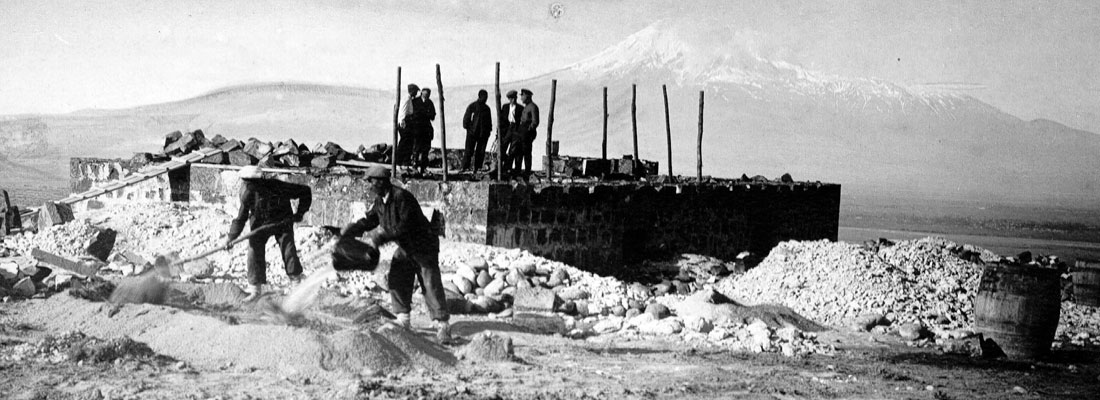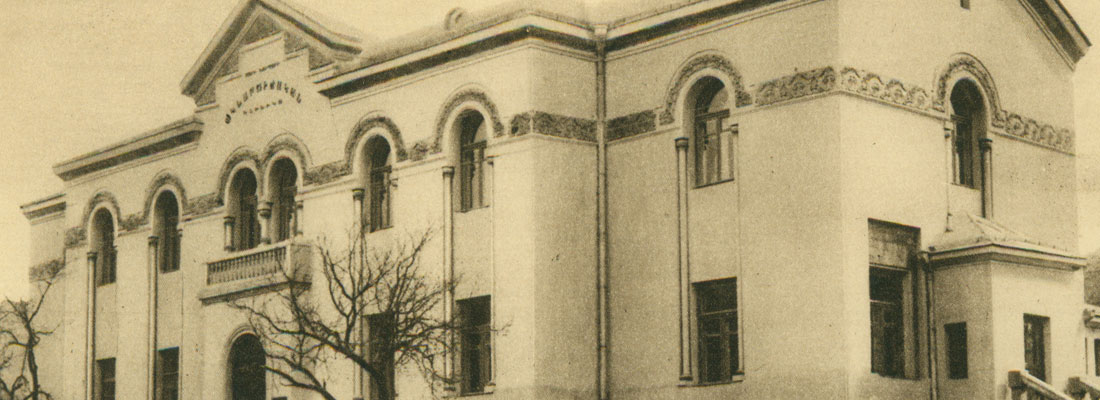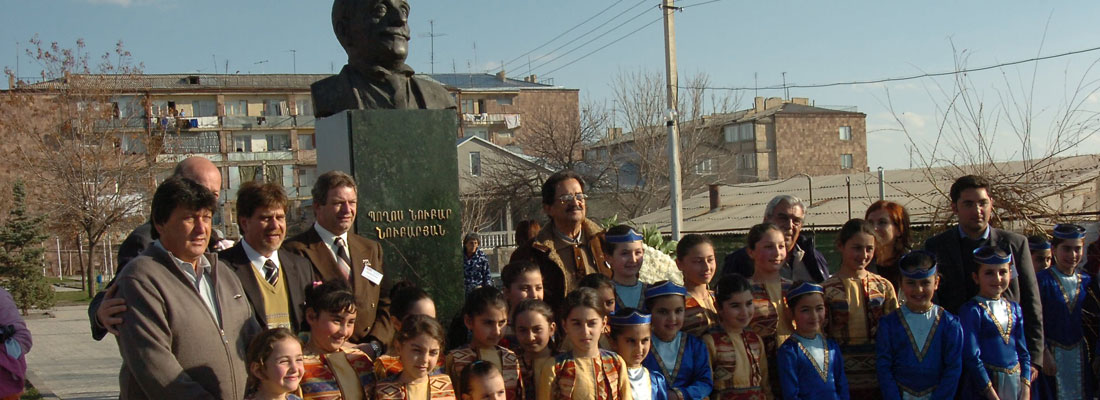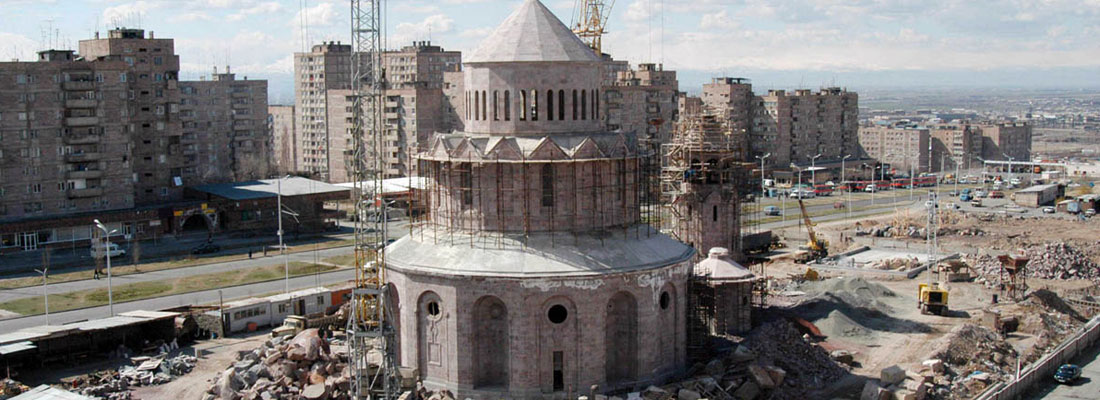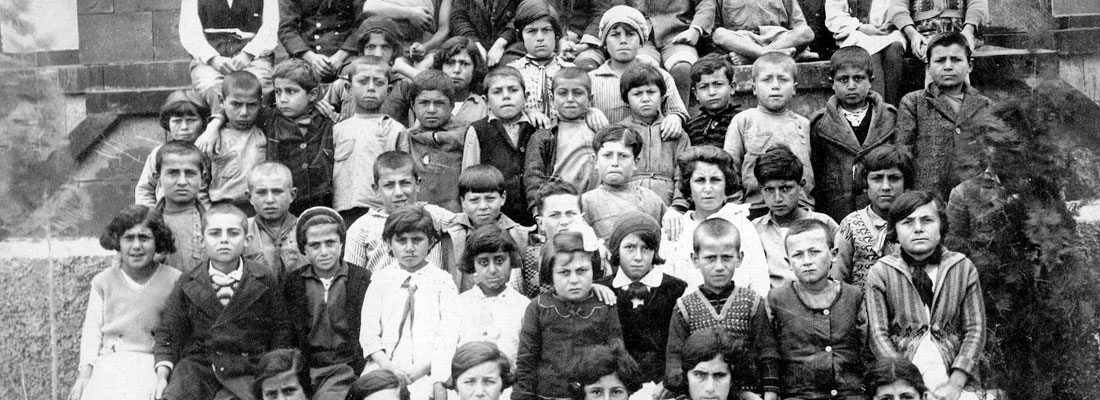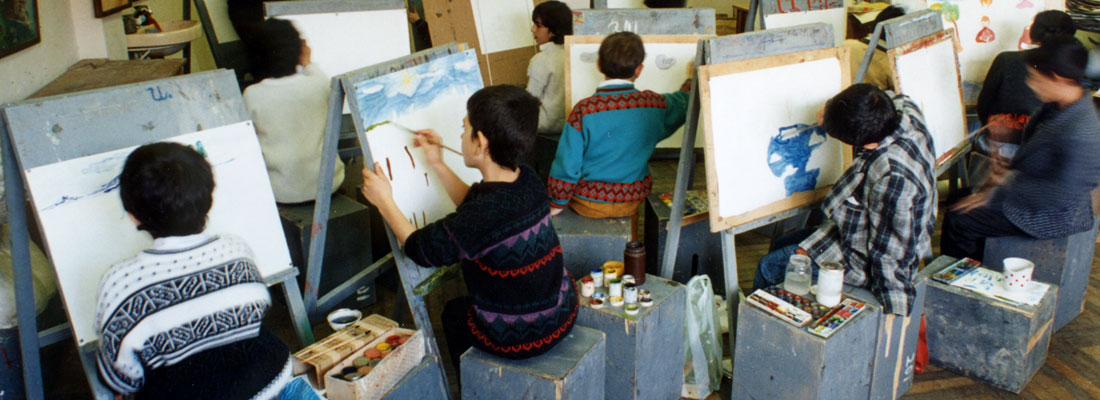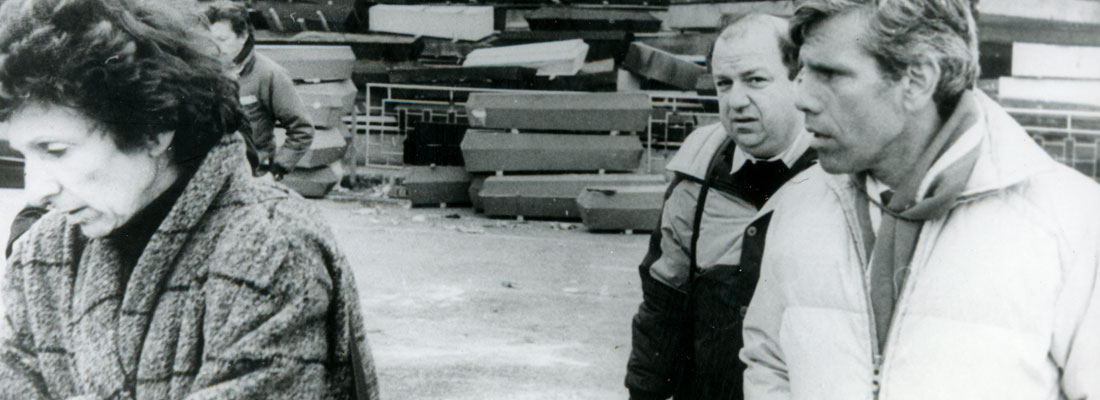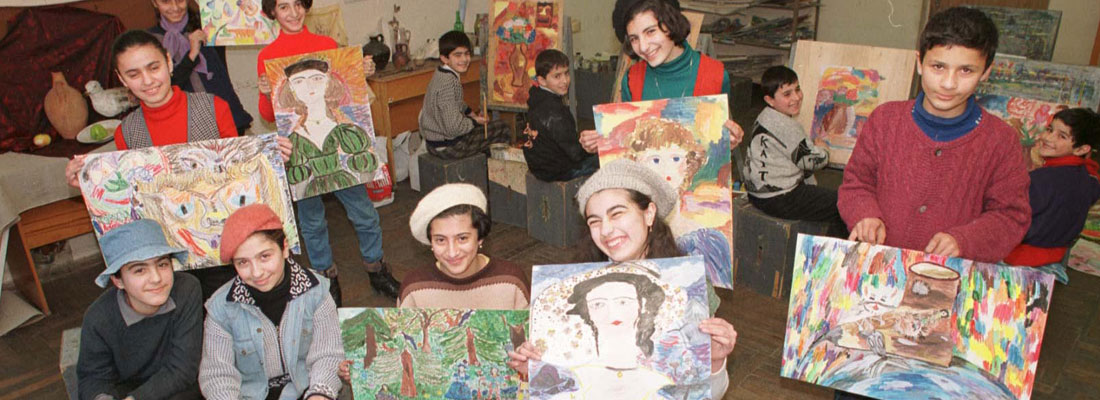A Timeline
Since our founding, AGBU’s goal has been to support the people of Armenia and help our homeland realize its potential as a viable and prosperous nation. AGBU has always remained committed to Armenia in pursuit of the higher national interest, irrespective of the state of the regime or internal politics of the country.
AGBU First Assistance to Armenia
In 1907, immediately following its inception, AGBU began providing food and seeds to families in famine-stricken Yerevan.
AGBU in Soviet Armenia
1920-30s
According to the order of 1923, signed by As. Mravyan and Ar. Yerznkyan, the education and agriculture officials of Armenia at the time, AGBU became the only benevolent organization allowed to function in the Soviet Armenia over the next 14 years providing for the common good – helping to build infrastructure, contribute to rural development and provide education and care to orphans transported from abroad and lodged in rural areas of Armenia.
1920s
Agricultural machines, seed and other assistance sent to Soviet Armenia.
1923-36
Approximately 17,000 Armenian migrants return to motherland from Bulgaria, France, Greece, Israel, Lebanon, Turkey and other countries through AGBU’s efforts for the repatriation of the survivors of the Genocide.
1924
Transfer of 250 orphans from AGBU orphanages abroad to Armenia.
1925
Establishment of New Yedovkia village for the resettlement of repatriated Armenians.
1926
Assistance to the reconstruction of Shirak region earthquake zone.
1929
Establishment of Mary Noubar Eye Clinic and “Darouhi Hakobian” Pregnancy and Pediatric Care Center for the betterment of public health and quality of life.
Since 1930
Assistance to the Yerevan State University from the Melkonian Fund providing modern equipment for the support of scientific research and publishing works on Armenian studies.
1936
Completion in Yerevan of a modern residential building which became home to the Armenian Intelligentsia.
1937
$1 million fundraised to establish the Nubarashen settlement, which was opened to 1,000 repatriated Armenians.
1937
Opening of the Matenadaran library and publishing house constructed by AGBU.
1944
$105,000 worth of medicine and clothing sent to Armenia from abroad.
1946
51,060 Armenians repatriated from Bulgaria, Greece Iran, Lebanon, Romania and Syria through $1,073,810 raised by AGBU.
1944-48s
AGBU fundraised over $2 million for the general purpose of assisting immigration and supporting postwar Armenia.
1950-88s
AGBU assistance to Armenia through the Church.
1983
Opening of Alex Manoogian treasury house in Holy See of St. Etchmiadzin.
Earthquake of 1988
After an earthquake shattered Armenia’s Shirak region, AGBU took immediate action, overseeing critical emergency relief efforts that saved tens of thousands of lives. Within three days of the natural disaster, AGBU began distribution of clothing, food, medicine and other necessary provisions to Armenia. Soon thereafter AGBU also began addressing the critical needs of earthquake victims, facilitating medical treatments in the US and sending international doctors and specialists to Armenia to provide medical assistance. By the end of 1991, AGBU had raised over $10 million for the earthquake to support the needs of the victims.
Independent Armenia (1991-Present)
Following the inception of the Republic, when the state was in its formative years, AGBU focused its efforts along with its humanitarian initiatives towards preserving and strengthening the vital infrastructures to prevent an exodus of talents. The organization sponsored the major national cultural and educational institutions and helped with the introduction of a western model of education. The goal of this effort was to provide exposure to the western managerial, entrepreneurial and diplomatic standards to the young leadership of the country in order to best prepare them to compete as a nation in the international free market and on the political scene. These timely initiatives and contributions of AGBU were of great signficance while the government matured and became capable of taking over such institutions. They served as a beacon of hope and encouragement to the people of Armenia through uncertain times.
AGBU continues to stand in solidarity with Armenia and has provided in the arenas of education, culture, religion and healthcare/social assistance since 1991. Some of the efforts include:
Education
- Stepanakert School #7 – (Opening took place on January 16, 2006, and hundreds of students have since enrolled.)
- Gyumri School #7 – Complete reconstruction and renovation.
- Lord Byron School in Gyumri – Renovation, ongoing care, construction of boiler-house and a playground.
- Gyumri School #3 for handicapped children – Renovation and continuous care.
- Irind village school – Complete furnishing.
- Significant support provided to the American University of Armenia and Yerevan State University.
- Continuous assistance to the Meghri kindergarten.
- AGBU Childrens Centers in Nork, Arapkir and Malatya subrubs of Yerevan which provide supplemental after-school instruction in studio and performing arts as well as gymnastics, religious studies and computers.
- Support provided for the French University of Armenia.
Culture
- Gyumri Art Academy – In 1997, AGBU renovated the old facility completely destroyed during the earthquake to establish the Gyumri Art Academy. The building now includes the Gyumri branches of the Art Academy, the Institute of Cinema and Theater, and the Conservatory. Since then, enrollment has increased from 9 students to over 150. In 2005 the AGBU constructed new studios in the academy roof for the student-painters.
Religion
AGBU donors have contributed largely to the construction of countless churches and religious institutions in partnership with the Holy See of Etchmiadzin. For a complete list, click here.
- Alex Manoogian Gandzatun (Holy Etchmiadzin Museum) (1983)
- St. Gregory the Illuminator Cathedral
- Holy Trinity Church in Yerevan
- St. Hakob Church in Gyumri
- St. Gregory of Narek Church in Vanadzor
- St. Sarkis Church of Nor Nork
- Arapkir Church in Yerevan
- Holy Etchmiadzin Elderly Home
- Vaskenian Theological Seminary on Lake Sevan
- Administrative Building of Holy Etchmiadzin
- Holy Etchmiadzin Clergy Housing
- Holy Etchmiadzin Library/Repository (Matenadaran)
- Restoration of the Holy Etchmiadzin Old Veharan
- His Holiness Karekin I Education Center
- St. Anna Church in Yerevan
- Candle lighting hall and Catholicoi Museum (groundbreaking 2012)
Healthcare/Social Assistance
AGBU has made substantial contributions in the fields of public health and medicine providing medical equipment and training to medical personnel and establishing well-equipped modern diagnostic facilities. AGBU partnered with the Holy See of Etchmiadzin to fund the renovation and expansion of its many health and social service centers and institutions, including refurbishing the old “Pioneer Palaces” and replacing them by educational centers for children where specialized teachers and artists could provide daily after school classes in creative and performing arts. Other significant projects include:
- Establishment & managing of Hye Geen Pregnant Women’s Centers in Vanadzor, Talin and Yeghvart
- Senior Dining Centers (Soup Kitchens) in Nork, Malatya and Arapkir suburbs of Yerevan
- AGBU Ultrasound Center
- Renovation of the Vanadzor orphanage
- Renovation of Vanadzor clinic #4
- Providing cows and flour to the needy families of Amasya region
- Construction of St. Nersess Hospital
AGBU has also invested efforts in various projects in Stepanakert, Karabakh and surrounding villages over the past decade, including providing vital support to toward the creation of schools and residences. AGBU continues to provide assistance to the Karabakh Chamber Orchestra and has recently partnered with the New Education Strategy, which brings world of technology to classrooms and disadvantaged students throughout the region.
